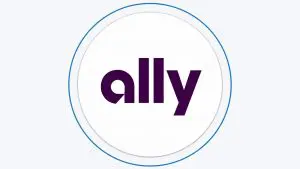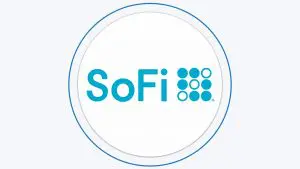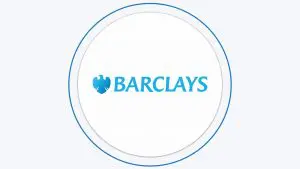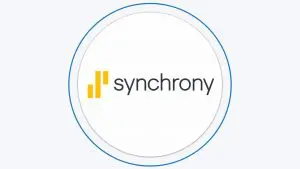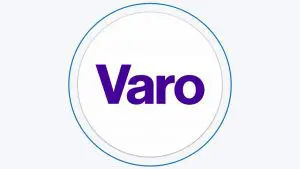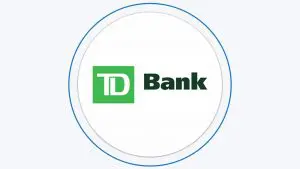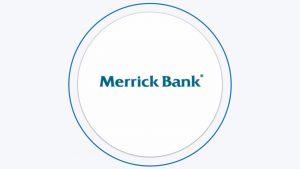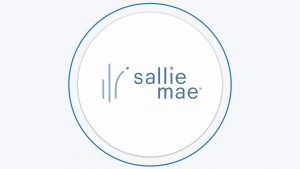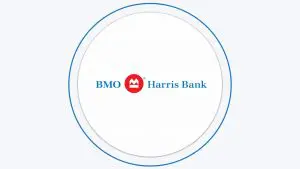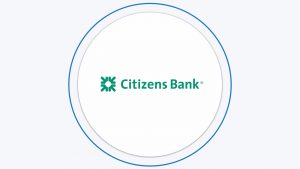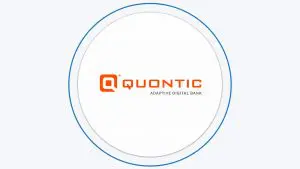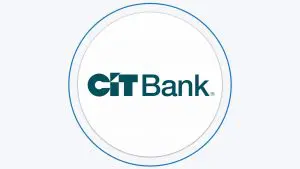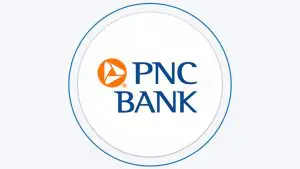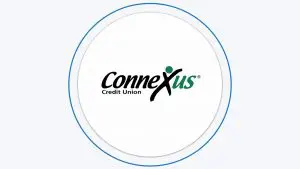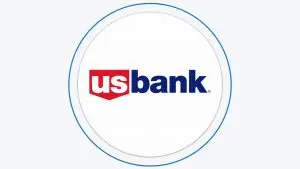Table Of Content
Chime offers FDIC-insured accounts and is ideal for those managing money online or via mobile.
While it lacks the variety of traditional banks, Chime compensates with low fees, no minimum balance requirements, and no monthly account charges.
Its Spending Account (checking account) helps improve financial management without the hassle of fees. Chime’s flexible screening process makes it accessible for individuals with imperfect or limited credit history.
Varo, a mobile-based bank founded in 2015, operates entirely through its app for iOS and Android.
With no physical branches, Varo provides robust features for on-the-go users, supported by Bancorp Bank’s extensive network and services.
Banking Options
Chime | Varo | |
|---|---|---|
Savings Accounts | ||
Checking Accounts | ||
CDs | ||
Money Market Account | ||
Debit Card | ||
Credit Cards | ||
Personal Loans | ||
Mortgage | ||
Government Mortgage | ||
Business Loans | ||
Investing Capabilities |
Savings Account
Both Chime and Varo’s savings accounts are fee free and decent products.
The Varo base rate is 2.50% – 5.00%, and you only need to receive $1,000+ in direct deposits or maintain a savings balance of more than $5,000 to access rates of up to 3%.
In terms of certificate of deposits, there is no comparison here, as neither Chime or Varo currently offers CDs. So, if you are looking for CD products, you’ll need to look elsewhere.
Chime | Varo | |
|---|---|---|
APY | 2.00% | 2.50% – 5.00% |
Fees | $0 | $0 |
Minimum Deposit | $0 | $0 |
Checking Needed? | No | Yes |
Main Benefits |
|
|
Checking Account
At first glance, the Chime and Varo checking accounts appear very similar. The accounts are fee free with no minimum balance requirements. They both also offer round up savings, so you can easily increase your savings.
Essentially, if you swipe your debit card for a purchase for $9.60, your checking account will be billed $10 and the remaining $0.40 will go into your savings. These round up amounts are so small that you are not likely to notice them as you make your purchases, but over a month or two, they can add up to boost your savings.
Other features in common include getting access to your direct deposit paycheck up to two days early and access to a large ATM network of 60,000+ fee free machines for Chime and 55,000+ machines for Varo.
There are some features that distinguish these checking accounts from each other. For example, while Varo makes it easy to deposit checks through the app, Chime offers up to $200 overdraft facility fee free subject to eligibility requirements.
Chime | Varo | |
|---|---|---|
APY | 0% | 0% |
Fees | $0 | $0 |
Minimum Deposit | $50 | $0 |
Main Benefits |
|
|
Credit Cards
Chime’s credit card is a secured card with the aim to help you build credit. There is no annual fee or interest and no credit check to apply. You will need a security deposit for the card, but there is no required minimum.
Chime reports your card payments to all three credit bureaus, so you can start building your credit over time. Chime claims that its members' credit scores increase by an average of 30 points.
Varo also offers a secured credit card as its only option. This secured card has no annual fee, no APR and no minimum security deposit. You can simply add money to your “Believe” secured account and then use your credit card for making purchases.
When you pay your balance in full and on time each month, it is reported to the credit bureaus, which can help you build and improve your score. You can even see your credit score in the app, so you can monitor any changes.
Customer Service
Chime has a toll free number that is available 24/7, so you can access the customer service team at any time if you have any queries or questions.
Varo has a website help center with an extensive FAQ section. There is also a contact email address and customer service phone number, but there are no details of when the phone lines are open to receive calls.
Online/Digital Experience
Both Chime and Varo have an app to help you to manage your accounts on the go. Chime’s app is rated 4.8/5 on Apple and 4.7/5 on Google, while the Varo app is rated 4.6/5 on the Apple Store and 4.5/5 on Google Play.
The bank’s websites are both easy to use, with plenty of learning resources. Since both banks offer a secured credit card, these resources are mainly geared towards improving your credit, but there are some helpful articles on banking, saving and investing.
Which Bank is The Winner?
Since both banks are quite similar, to determine which bank is better, we’ll need to assess them according to what you’re looking for.
If you have a less than perfect credit rating, Chime offers a great trifecta of products. The checking and savings accounts are solid products, but the no credit check secured credit card is a nice touch.
Varo’s products are well coordinated to work together, particularly when you combine the savings and checking accounts. When you can meet the combined balance requirements, you can access higher savings rates.
The banks have a number of features in common including no monthly fees, auto save features, and great rates. Both banks also offer a secured credit card, so it comes down to which bank appeals to you.
FAQs
What is Chime SpotMe?
Chime SpotMe is a free feature that allows Chime members to overdraft their accounts without incurring overdraft fees when using their debit cards.
If you have a total monthly direct deposit of $200 or more, you are eligible for SpotMe, an optional feature that allows you to overdraft $20 to $200 without incurring an overdraft fee. Rather than penalizing you for overspending your account, Chime simply covers the negative balance with your next deposit.
How Chime can help you to build credit?
Building credit after a credit blunder or establishing credit for the first time can be difficult. To qualify for most cards, you must be able to demonstrate your ability to manage credit, which can be a catch-22. The Chime Credit Builder card was created to address this issue. It is intended to be used in conjunction with a Chime Spending Account. You can fund your Credit Builder card with funds from your account.
You can then use your card at any retailer or store that accepts Visa. Furthermore, the banking platform does not look at your ChexSystems history, making this a great option if banks have turned you down.
How do I get a Varo Money account?
Signing up for a Varo account begins on the company's website or app. After the app has downloaded, tap Sign Up and follow the on-screen instructions to submit your application.
After that, you'll need to download the app to finish setting up your account. It is, however, impossible to bank with Varo without a smartphone or tablet. It should only take you five minutes.
If you'd rather sign up on the website, go to www.varomoney.com and click the Get Started button.
Should I Consider Varo?
It is a good first bank for young first-time customers, particularly millennials who may not be able to open an account with larger banks right away.
The concept of a mobile-only bank is both novel and forward-thinking. This could be the direction that banking takes in the coming years.
They could give the older and more popular banks a run for their money with some app improvements and the addition of new deposit and investment products to their menu.
Banking Reviews

Aspiration Review
Alliant Credit Union Review
Banks & Credit Unions Reviews
Compare More
Chime vs Axos
Axos Bank offers home improvement loans as well as checking and savings accounts online. Because Axos is a low-cost online lender, it is able to pass on significant savings to its customers. Axos waives many fees and reimburses ATM and rewards checking fees.
Chime is an online-only company that works with two banks to provide checking and savings accounts. Online banking with Chime is not the same as using a traditional banking system. Chime secures and protects your online financial accounts. It is a safe place to keep your money and access it without any technical difficulties.
Read Full Comparison: Axos VS Chime: Which Online Bank Is Better?
Chime vs Current
There are some key differences between Current and a traditional checking account. Current, for example, allows you to access direct deposits up to two days faster and manage your account completely through the mobile app. Keep in mind that Current does not have any physical locations, so you will be unable to deal with any banking issues in person.
Online banking with Chime is not the same as using a traditional banking system. Chime secures and protects your online financial accounts. It is a safe place to keep your money and access it without any technical difficulties. You can round up your purchases to the nearest dollar amount and save the difference because Chime has no monthly or overdraft fees.
Read Full Comparison: Chime vs Current – Which Banking Service Is Better?
Chime vs Marcus
Marcus, a Goldman Sachs Bank division, provides online savings accounts, CDs, and personal loans. Marcus has no physical locations, so you can only access your accounts through the Marcus website, mobile app, or phone-based customer service.
In addition to assisting you in avoiding typical bank fees, Chime includes useful new features such as early direct deposits and automatic saving. While Chime does not provide credit cards or loans, its savings options and competitive interest rates make it an excellent choice, especially for younger people.
Chime vs SoFi
SoFi's online Spend and Save account, like the Chime online checking account, is fee-free, but it has some different checking account features. Chime, for example, offers a $200 fee-free overdraft facility subject to terms, whereas SoFi provides cash back if you have recurring direct deposits of $500 or more each month.
Read Full Comparison: SoFi vs Chime: Which Online Banking Wins?
Chime vs Ally
Ally has a robust banking product offering that rivals that of a traditional bank. Savings accounts, checking accounts, CDs, investments, retirement products, personal loans, auto loans, and mortgages are all available.
Chime's product line has been simplified. All Chime products are designed to assist customers in rebuilding or establishing credit. There are only two savings accounts, one checking account, and one credit card available.
Varo vs Axos
Axos is a large online bank that offers checking, savings, CDs, investing, and other services. Customers can earn interest or cash back on a variety of checking account options. The APY on Axos Bank's Rewards Checking account isn't the highest among online banks, but it's high enough to justify opening an account as part of a larger online banking strategy, and there aren't many fees.
Varo Bank is a web-based bank that offers a variety of deposit and loan products. It was founded in 2015 and is based in San Francisco. Varo offers high-yield savings accounts and cash-back checking accounts, as well as a fee-free ATM network (see below for more information from Varo) and automatic savings tools.
Read Full Comparison: Axos vs Varo: Compare Banking Products
Varo vs SoFi
SoFi offers a Spend and Save account that is part savings account and part checking account. You can earn 0.25 percent on your entire balance, but you can also establish savings vaults. These are separate funds within the account that allow you to allocate funds to various savings goals. This allows you to save for both short and long-term goals without having to manage multiple savings accounts.
Varo, on the other hand, has a more traditional savings account that offers an impressive up to 3% interest rate. Higher rates are available if you keep a savings balance of $5,000 or more or receive $1,000 or more in direct deposits during the qualifying period.
Read Full Comparison: SoFi vs Varo Bank: Which Account Is Better For Your Money?
How We Compared Varo and Chime: Methodology
In our comprehensive banking comparison, The Smart Investor team thoroughly assessed Chime and Varo across five main categories:
- Checking Accounts (30%): We scrutinized essential features like direct deposit, debit card availability, monthly maintenance fees, ATM and branch access, check deposit, bill pay options, and account alerts. Additionally, we considered any special checking account options and promotions offered to customers.
- Savings Accounts including CDs (20%): Our evaluation focused on critical factors such as APY (Annual Percentage Yield), minimum deposit requirements, Terms and Flexibility of accounts, and the assurance of FDIC insurance. We also examined special savings options, variety of CDs, automatic renewal options, and early withdrawal penalties.
- Credit Cards (15%): We analyzed the rewards program, annual fees, intro bonuses, travel benefits, APR, and balance transfer options offered by each bank's credit cards, ensuring a comprehensive comparison of available features.
- Lending Options (15%): We assessed the variety of lending options available, including personal loans, student loans, mortgages, secured loans, HELOCs, and Home Equity Loans, providing consumers with insights into the bank's lending capabilities.
- Customer Experience And Bank Reputation (20%): Our evaluation included an analysis of online banking and mobile app usability and ratings, customer support accessibility, online reviews, JD Power research, Trustpilot ratings, and the overall Financial Stability of each bank, ensuring a holistic view of customer experience and reputation.
The secured Chime Credit Builder Visa® Credit Card is issued by The Bancorp Bank, N.A. or Stride Bank, N.A., Members FDIC, pursuant to a license from Visa U.S.A. Inc. and may be used everywhere Visa credit cards are accepted. Please see the back of your card for its issuing bank.
Chime is a financial technology company, not a bank. Banking services and debit card provided by The Bancorp Bank N.A. or Stride Bank, N.A.; Members FDIC. The secured Credit Builder card issued by Stride Bank, N.A.

